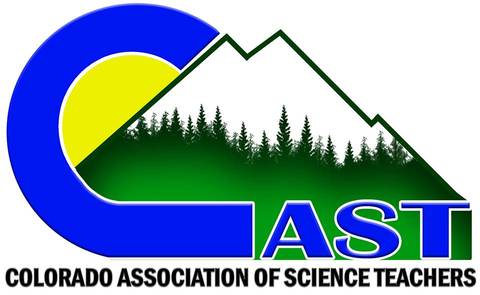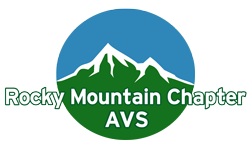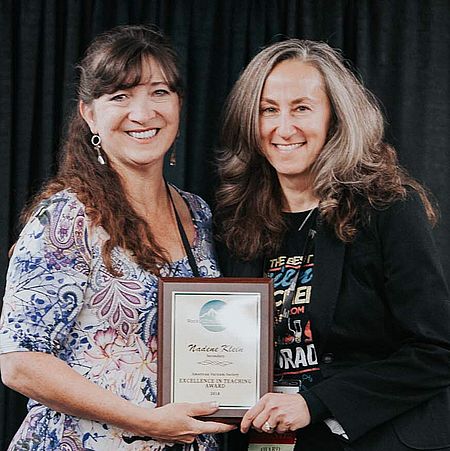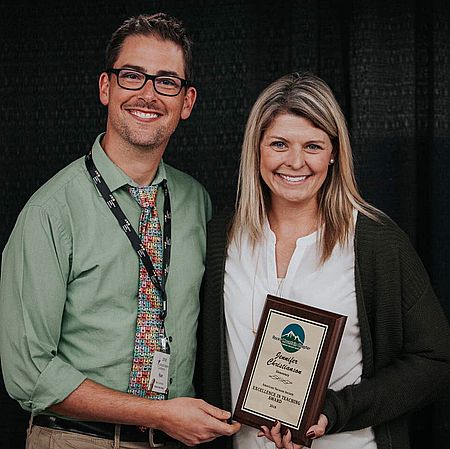RMCAVS Annual Symposium
Rocky Mountain Chapter of the American Vacuum Society generally holds a free one-day symposium and vendor exhibit in the fall, with multi-day and one day vacuum related short courses held at the same time and location. We have also hosted larger workshops like the AVS surface analysis workshop and will likely do so again in the future.
American Vacuum Society (AVS) Science Educators Workshop
The national AVS has conducted a two-day in-service workshop on low-pressure experiments and modeling for middle and high school science teachers from the United States and Canada since 1990. Attendees are sponsored by regional Chapters of the Society with all expenses paid by the sponsoring Chapter. The workshop is accredited for Continuing Education Units by the University of Dayton and is aligned with the national science and mathematics standards.
High school science teachers are encouraged to apply before September 30, 2023
AVS will be offering our next Science Educators’ Workshop on November 6-7, 2023 in Portland, Oregon. High school science teachers are encouraged to apply before September 30, 2023 for sponsorship to attend this workshop by filling out the following application:
AVS has conducted a two-day in-service workshop on low-pressure experiments and modeling for high school science teachers from the United States and Canada since 1990. Attendees are sponsored by regional Chapters of the Society with all expenses paid by the sponsoring Chapter. The workshop is accredited for CEU’s and is aligned with thenational science and mathematics standards.
The workshop is divided into two parts: (1) lectures on the underlying science and the mathematical calculations and (2) hands-on experience in which a group of teachers perform experiments and develop models under the guidance of an instructor team.
View pictures from a previously held workshops:
Upon completion of the workshop, teachers receive at no cost:
- A certificate of completion
- 1.5 Nationally certified CEU‘s or 150 sixty-minute clock hours from the University of Dayton
- A vacuum system for their school identical to ones used in the workshop
To receive a vacuum system, a school must sign a liability release. Information about the equipment grant and release form can be obtained by e-mail at SEW@AVS.ORG.
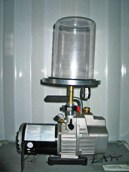
Vacuum System Awarded to Workshop Attendee’s School
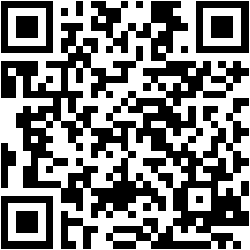
Colorado Science & Engineering Fair
For many years, the Rocky Mountain Chapter of AVS has sponsored special awards at the Colorado State Science & Engineering Fair. Our prizes are $100 for first place and $50 for second place, in both Senior and Junior Divisions, for projects mainly in physical sciences and engineering. We award these prizes to each student and a matching amount to each winner's teacher/sponsor. We hope these awards encourage students to pursue their interests in science & engineering. Year after year, the level of these students' scientific understanding, their hard work, and above all, their curiosity and enthusiasm, are truly inspiring.The national AVS has conducted a two-day in-service worksholigned with the national science and mathematics standards.
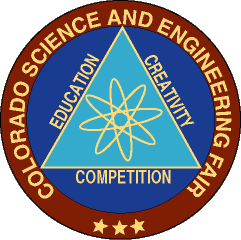
For more information about the Colorado State Science & Engineering Fair: www.csef.colostate.edu
This year’s judges:
- J Grant Armstrong – Carberry Technologies
- Mary Ann Bjornsen – USDA / Center for Animal Health Information and Analysis
- Jennifer Drayton – Colorado State University
If interested in helping out next year contact Grant Armstrong: jgranta@gmail.com
Colorado Science & Engineering Fair
For many years, the Rocky Mountain Chapter of AVS has sponsored special awards at the Colorado State Science & Engineering Fair. Our prizes are $100 for first place and $50 for second place, in both Senior and Junior Divisions, for projects mainly in physical sciences and engineering. We award these prizes to each student and a matching amount to each winner’s teacher/sponsor. We hope these awards encourage students to pursue their interests in science & engineering. Year after year, the level of these students’ scientific understanding, their hard work, and above all, their curiosity and enthusiasm, are truly inspiring. Our AVS chapter is one of about 70 organizations that offer over 300 individual special awards and scholarships worth more than $170,000.
When the last CSEF was held in 2019, there were:
- 329 projects submitted by 392 students (some projects were by teams of 2 or 3 students).
- 168 seniors (grades 9-12) and 224 juniors (grades 6-8), from 115 Colorado schools
- 183 projects were in physical sciences (our main focus); 146 in life sciences.
- 198 teachers or other mentors sponsored/supported the students with their projects.
Sadly, due to the coronavirus pandemic, the 2020 CSEF was cancelled.
Time’s 2020 Kid of the Year
But let’s end the year on a more positive note: in December, Time announced their first-ever “Kid of the Year” award to Colorado student Gitanjali Rao. At the 2018 CSEF, our chapter chose Gitanjali’s project for our First Place Junior Award. Here’s a reprint of her project abstract:
2018 CSEF Junior Division – RMC-AVS – 1st Place – Gitanjali Rao
7th grade, STEM School, Highlands Ranch, sponsor Dr Selene Hernandez-Ruiz
project Detection of Chemical Contaminants in Water Using Carbon Nanotube Sensors
abstract Millions of people around the world are exposed to water containing lead and its harmful side effects. Exposure to lead, especially in children, have lasting effects to development of brain, nervous system, and organs. It is estimated that over 5000 water systems and over 10 million service lines, in US alone, have lead contamination issues. The problem is compounded by the fact that accurate and actionable detection of lead in water today is a time consuming process. My solution addresses the core issue of speedy detection of lead contamination, potentially helping people take preventative measures and maybe even save lives! It uses the latest development in nanotechnology, is easy to use, fast, accurate, inexpensive and portable. It is a portable device, and uses nanotechnology materials to detect contaminants and almost immediately provides readout on mobile phones. Carbon nanotubes are strong conductors of electricity, due to their unique shape and structure. Any resistance in the structure causes measurable drop in the flow of current. My idea is to introduce, or dope, ions of elements that have strong affinity to lead, into the nanotube structure. When introduced to lead compounds in water, the resultant reaction with the sensor causes build up of molecules , adding resistance to electron flow and drop in current. The change in current flow is measured and mapped to proportional parts per billion scale of lead contamination levels in water. To make the reading user friendly, I added a Bluetooth attachment to my Arduino, that sends the data to mobile phones. A custom app I developed takes the PPB scale, using EPA standards, show the safety levels of their water. Based on the timing and conclusion, I intend to enhance this for other chemical contaminants in water such as mercury, arsenic and cadmium.
Since then, Gitanjali has continued development of her creation; you can read more about her here and see why Time chose her for “Kid of the Year”
Symposium Poster Winners

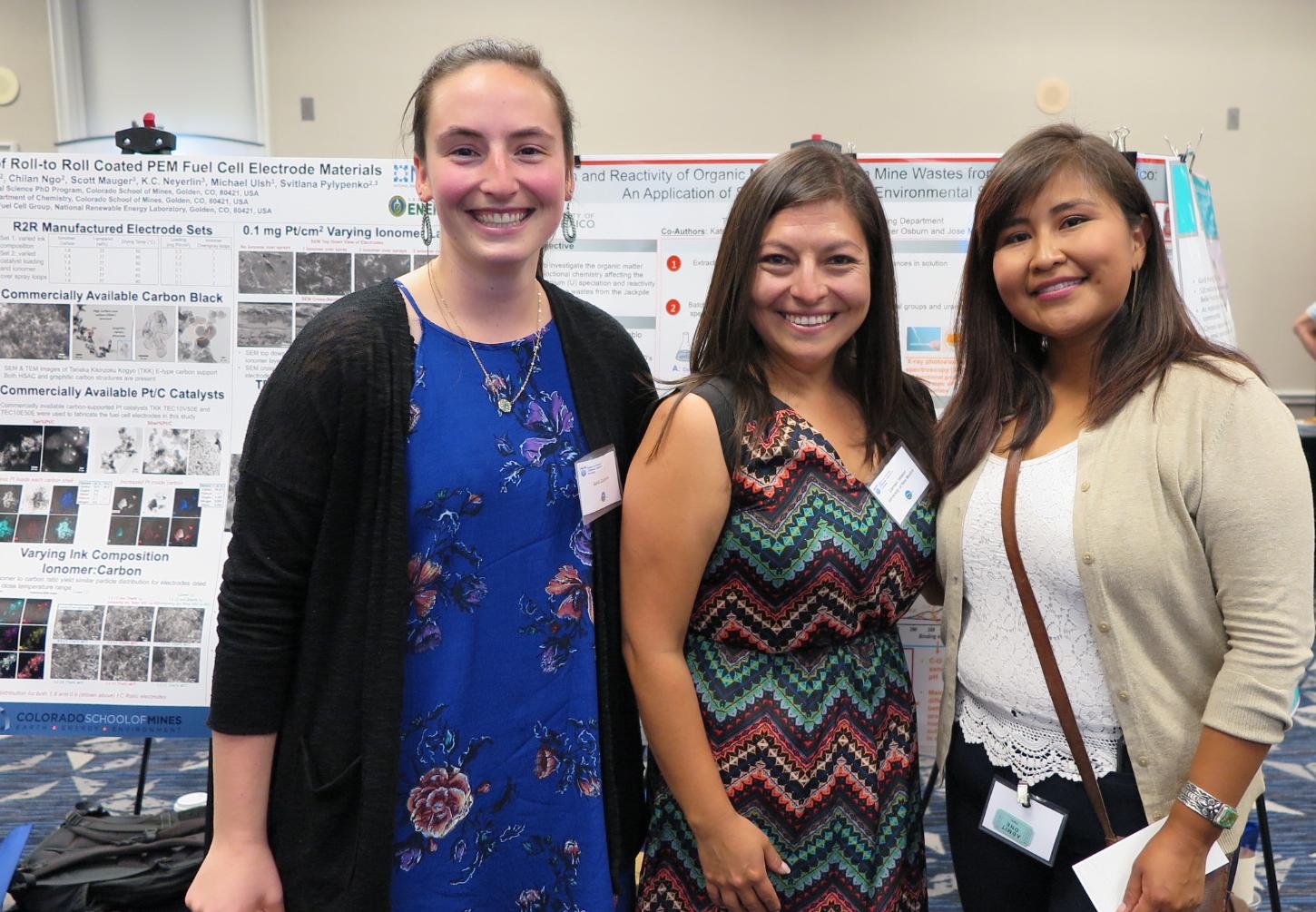
Speciation and Reactivity of Organic Matter in Uranium Mine Wastes from Laguna- New Mexico: An Application of Surface Sciences in Environmental Systems, Carmen A. Velasco, Abdul-Mehdi Ali, Christopher Osburn, Kateryna Artyushkova, José M. Cerrato
Effect of bicarbonate and phosphate on arsenic release from mining-impacted sediments in Cheyenne River (watershed), South Dakota, Cherie L. DeVore, Lucia Rodriguez-Freire, Abdul Mehdi-Ali, Carlyle Ducheneaux, Kateryna Artyushkova, Zhe Zhou, Drew E. Latta, Virgil W. Lueth, Melissa Gonzales, Johnnye Lewis, and José M. Cerrato
Characterization of extended surface catalysts for optimization of performance in polymer electrolyte membrane fuel cells, Sarah Zaccarine, Chilan Ngo, Sarah Shulda, Svitlana Pylypenko, Colorado School of Mines Scott Mauger, Shaun Alia, K.C. Neyerlin, Bryan Pivovar, National Renewable Energy Laboratory
